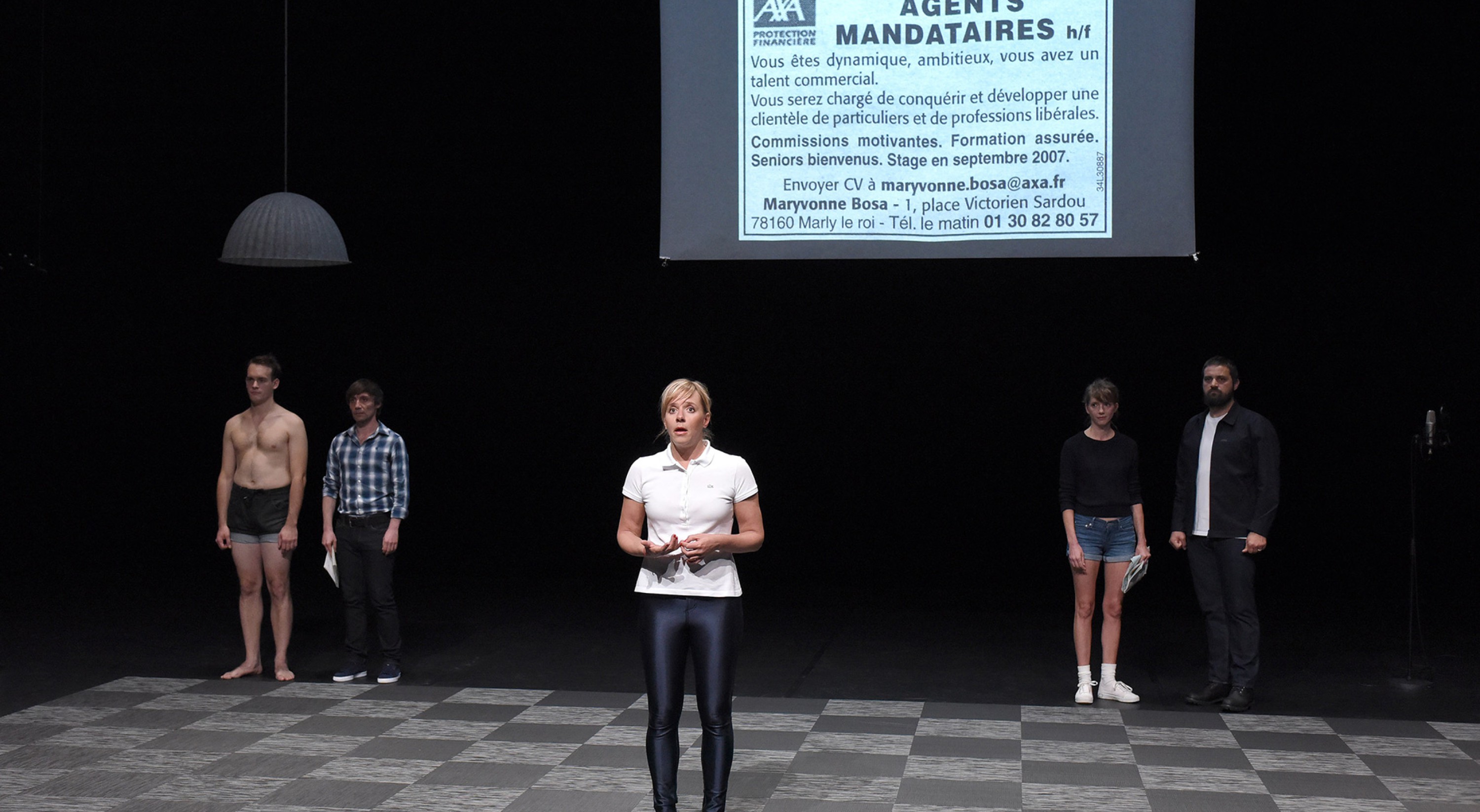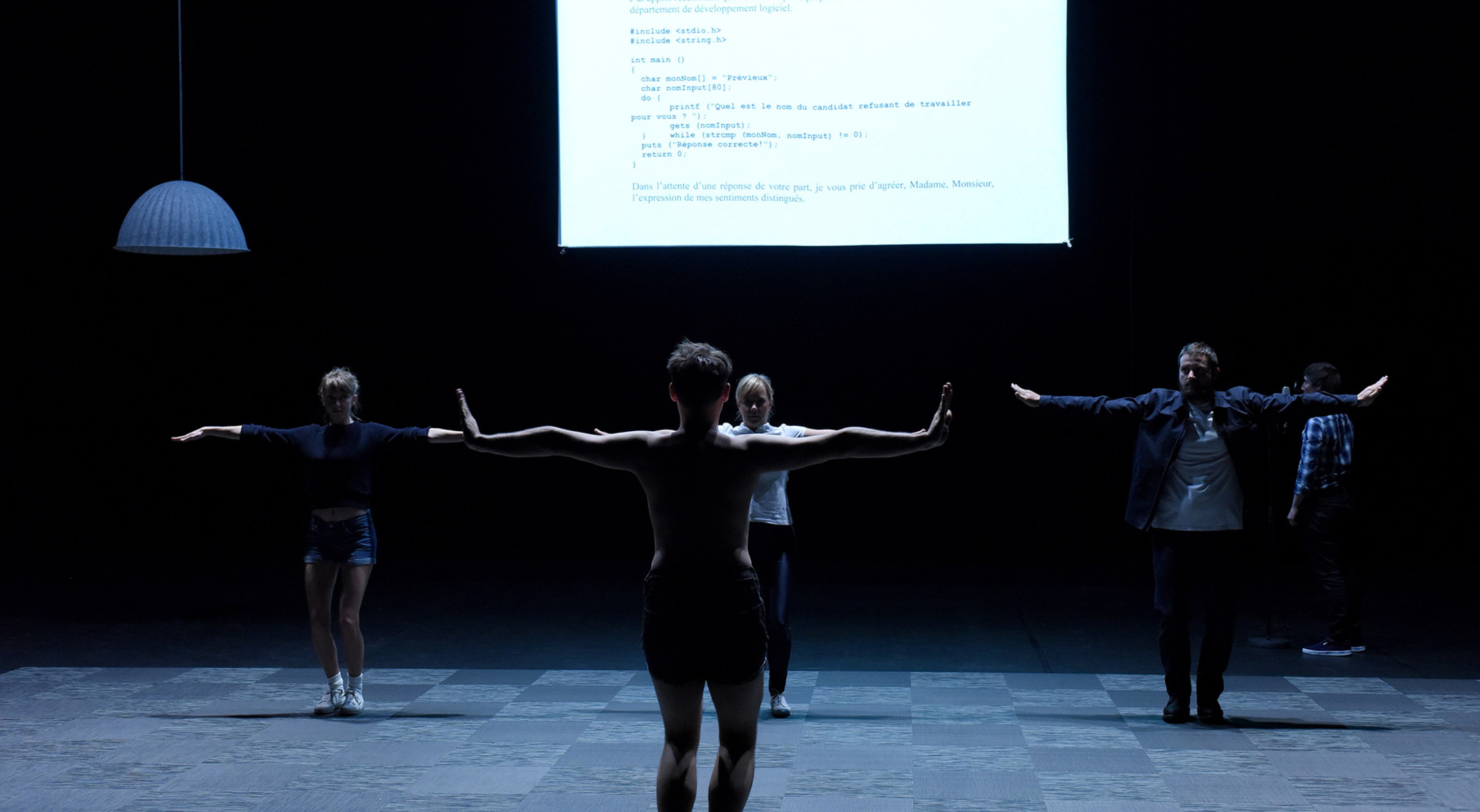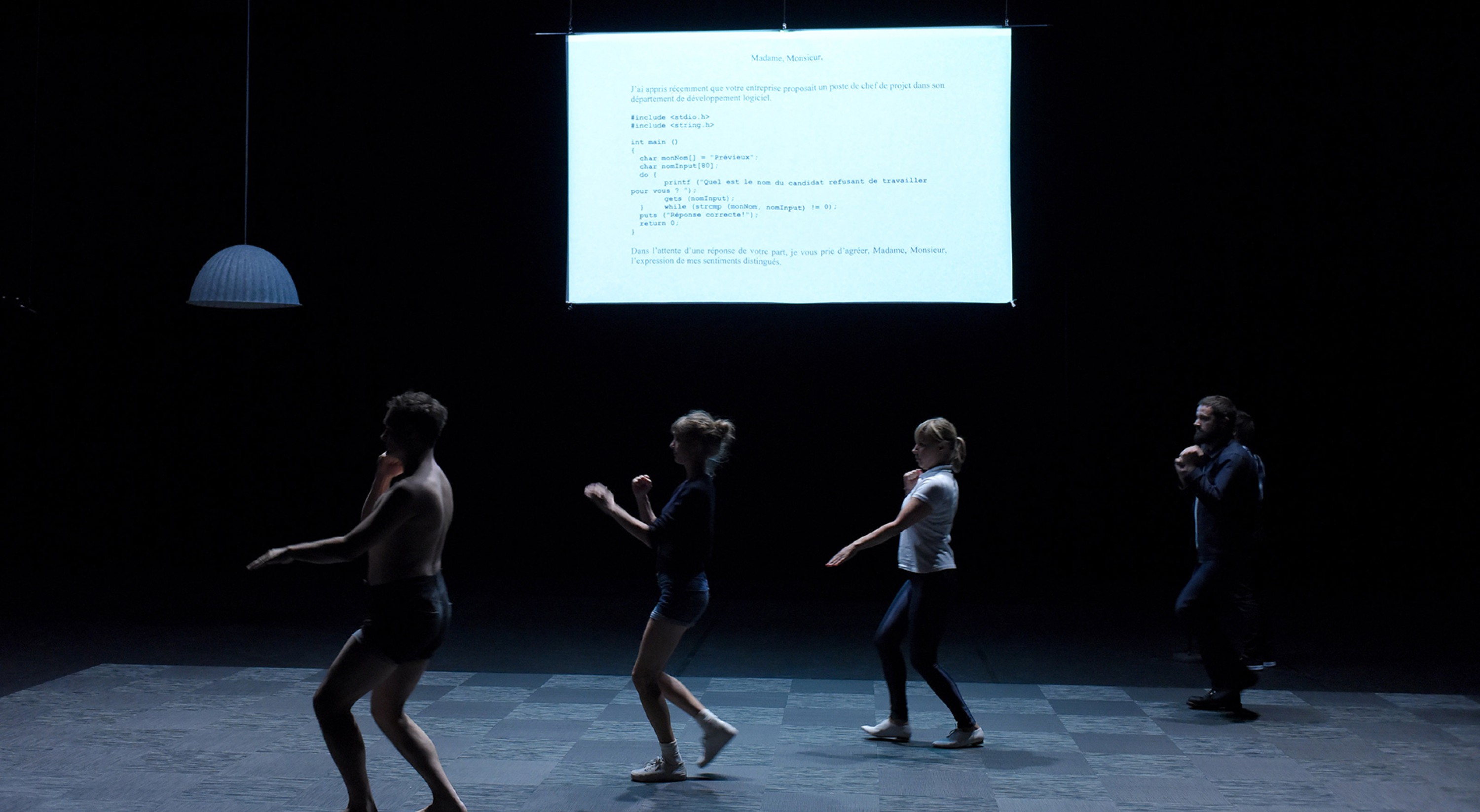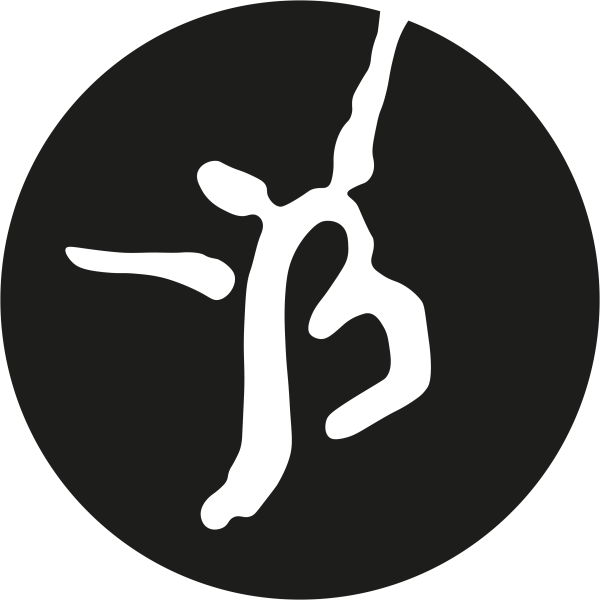Vincent Thomasset
Lettres de non-motivation
septembersept 30 - october – oct 30
novembernov 10 – 21
Conceived and directed by, Vincent Thomasset
Text, Julien Prévieux
With David Arribe, Johann Cuny, Michèle Gurtner, François Lewyllie, Anne Steffens
Scenography, in collaboration with Ilanit Illouz
Advises and raalisation, Anaïs Heureaux
Costumes, Rachel Garcia
Stage Manager, Vincent Loubière
Sound, Pierre Boscheron
Lighting, Annie Leuridan
A Laars & Co production
Associate producer Latitudes Prod.
In coproduction with Le Phénix – Scène nationale de Valenciennes ; Festival d’Automne à Paris ; Théâtre de la Bastille ; La Bâtie – Festival de Genève ; théâtre Garonne – Scène européenne (Toulouse) ; La Passerelle – Scène Nationale de Saint-Brieuc ; Les Spectacles vivants – Centre Pompidou ; Le GRAND SUD Lille
In partnership with Les Spectacles vivants – Centre Pompidou ; Théâtre de la Bastille ; Festival d’Automne à Paris
With artistic participation from Jeune Théâtre National // With support from CENTQUATRE-PARIS, Centre Culturel Suisse-Paris, Arcadi Île-de-France, DRAC Île-de-France / Ministère de la Culture et de la Communication
With support from agnès b. and Fondation La Poste
Warm thanks to Ilanit Illouz, Lise Leclerc, Anne Lemoine
First performance in September 2015 at la Bâtie – Festival de Genève
In Les Lettres de non-motivation, the visual artist Julien Prévieux replies in the negative to a whole series of job offers. With each new letter, he comes up with a never-ending variety of reasons for his refusal and, in doing so, takes on a number of different roles, similar to the different dress codes we are obliged to wear in order to be taken seriously on the job market. Taking the opposite view of the letter of motivation, this social ritual, he summons an army of recalcitrant would-be workers - an array of duplicate individuals who take offense, shy away, express their feelings of insufficiency, avoid answering questions, point out inconsistencies, expose ideologies and generally proclaim their lack of interest in a paid post.
Vincent Thomasset takes this piece, brimming with lavish, frenzied language, and brings five actors together in order to embody these letters and set them down physically in a mental space, that of reading. As an activity, the latter might range from silent to noise-based, intimate to official, spontaneous to prepared, and free to constrained. Comprising job offers, letters, and their replies, some personalized, but mostly automated, this work is based around the notion of resistance - to work but also to the stage. For the actors in these Lettres de non-motivation work from a paradoxical starting point, that of their resistance to going on stage, and they delve deep into their own imperfections as actors or actresses in order to throw light on what - or rather who - makes theatre. In this interplay between masks and metamorphosis, we are made to ask questions about our relationship with the grand enterprise of theatre, but also the mechanisms of power that structure social interplay.
In the same place




